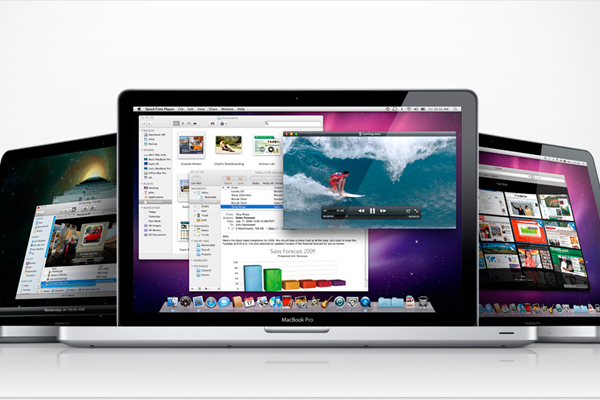Five tech sectors staring into the abyss
The end is nigh for some areas of the tech industry. We look at which ones could be six feet under in the not too distant future.


As we all know, nothing lasts forever.
Regardless of how wonderful a technology appears to be at the point of creation, it will eventually be replaced by something better.
Businesses need to keep up with what technologies could be redundant in years to come. If they don't, they'll risk being left with an IT infrastructure as healthy and as useful as a dying slug.
We take a look at five areas of the IT industry facing extinction areas where organisations may need to consider a complete rethink in how they are managed.
Some of these sectors may survive, others will not. Pay a visit to the business IT graveyard in the not too distant future and you might see their names engraved on tombstones next to the likes of floppy disks and dial-up modems.
Netbooks
If netbooks do become a thing of the past in the next few years, they would have had a very short life indeed. There are a number of clear indicators these little devices will be kicking the bucket some time soon.
Get the ITPro daily newsletter
Sign up today and you will receive a free copy of our Future Focus 2025 report - the leading guidance on AI, cybersecurity and other IT challenges as per 700+ senior executives
First off, there's the figures. Over the last four months, sales of netbooks have declined rapidly. In December, year-over-year sales in Western Europe were down 18.4 per cent, according to research firm Context. In January they had fallen 22.5 per cent and in February 34 per cent.
These declines come despite netbook price drops. Across the continent, average netbook sales prices went down from 236 (205) in January 2010 to 218 (189) this year.
"They're still not selling in huge numbers," said Context's mobile analyst Salman Chaudhry.
"It looks very likely that the tablet market is replacing the netbook market I think it'll still have a small presence but no way near the peaks we saw in 2009 when they were defying all vendor demand."
Then there's comment from within the industry. Apple chief operating officer Tim Cook said last year that he was unable to "think of a single thing a netbook does well." Even earlier in 2010, Steve Jobs described netbooks as "just cheap laptops."
It's obvious Apple has an agenda here, but when an actual netbook vendor is compelled to put out a statement saying it will continue to produce the devices, you know something must be up.
Earlier this year, a senior employee at Acer reportedly said the manufacturer would be leaving the netbook segment altogether to focus on tablets. Although Acer then came out to assure the public it would continue making netbooks, it admitted "the computer market is changing."
Indeed it is, and one change that looks likely is the usurping of netbooks by tablets. Convertibles like the Dell Inspiron Duo could also put a dent in netbook sales, although that particular machine failed to astound IT PRO.
Nevertheless, the IT Grim Reaper is starting to swing his scythe in the direction of netbooks.
Tom Brewster is currently an associate editor at Forbes and an award-winning journalist who covers cyber security, surveillance, and privacy. Starting his career at ITPro as a staff writer and working up to a senior staff writer role, Tom has been covering the tech industry for more than ten years and is considered one of the leading journalists in his specialism.
He is a proud alum of the University of Sheffield where he secured an undergraduate degree in English Literature before undertaking a certification from General Assembly in web development.
-
 Google faces 'first of its kind' class action for search ads overcharging in UK
Google faces 'first of its kind' class action for search ads overcharging in UKNews Google faces a "first of its kind" £5 billion lawsuit in the UK over accusations it has a monopoly in digital advertising that allows it to overcharge customers.
By Nicole Kobie
-
 Neural interfaces promise to make all tech accessible – it’s not that simple
Neural interfaces promise to make all tech accessible – it’s not that simpleColumn Better consideration of ethics and practical implementation are needed if disabled people are to benefit from neural interfaces
By John Loeppky
-
 Hackers accused of holding iPhones & iPads to ransom detained in Russia
Hackers accused of holding iPhones & iPads to ransom detained in RussiaNews Police search apartments following arrest
By Rene Millman
-
 Cisco to tackle BYOD challenge
Cisco to tackle BYOD challengeNews Networking vendor aims to help companies secure and control personal devices.
By Stephen Pritchard
-
 Enterprise security shoot-out: iPad vs. Android
Enterprise security shoot-out: iPad vs. AndroidIn-depth Davey Winder investigates the relative IT sec pros and cons of iOS and Android tablets…
By Davey Winder
-
 UPDATED: Apple iOS JailBreakMe flaw raises ‘security concerns’
UPDATED: Apple iOS JailBreakMe flaw raises ‘security concerns’News Apple is yet to fix a flaw used by the JailBreakMe crew to allow users to run non-approved apps on the iPhones, iPads and iPods.
By Tom Brewster
-
 Week in review: Windows 8, China loves Gmail and mobile phone radiation
Week in review: Windows 8, China loves Gmail and mobile phone radiationNews Windows 8 is coming! But when? The Chinese hack Gmail! Or did they? Mobile phones cause cancer! Or do they? It's been a very confusing week...
By Alan Lu
-
 Mac OS vulnerabilities skyrocket
Mac OS vulnerabilities skyrocketNews Mac OS vulnerabilities have risen by over five times, leading Panda Security to launch an anti-virus product for the operating system.
By Tom Brewster
-
 Week in review: Virus hits Iran nuclear power plant, Ballmer bonus woes
Week in review: Virus hits Iran nuclear power plant, Ballmer bonus woesNews The past week was filled with intrigue, action and big money as a virus hits an Iranian nuclear power planet, the British police crack down on the Zeus online bank thieves and Microsoft CEO Steve Ballmer misses out on a wad of cash.
By Alan Lu
-
 AT&T iPad hack exposer breaks gag order
AT&T iPad hack exposer breaks gag orderNews A Goatse Security member who helped publicise an AT&T website vulnerability opening up iPad user data has claimed his civil liberties have been "grossly violated".
By Tom Brewster